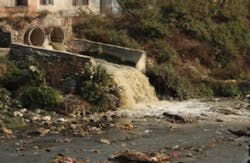Brazil wastewater treatment market expected to grow with government investment
NOIDA, India — A recently published report by TechSci Research, "Brazil Wastewater Treatment Plants Market Forecast & Opportunities, 2018," has found that an increasing gap between water demand and supply coupled with ground and surface water contamination is driving the Brazilian wastewater treatment plants market, according to a press release.
Read more articles on municipal water treatment here.
Brazil accounts for about 18 percent water supply globally, but the distribution of water resources is highly uneven, the release noted.
Government investment is also driving growth, according to Karan Chechi, research director with TechSci Research: “In 2000, about 33.5 percent [of] households in Brazil had access to public sewage, which is anticipated to rise about 65 percent by 2018. The anticipated expansion in the public sewage network would be on account of increasing investments by the government of Brazil to improve water and sewage [facilities] in the country. Further, the Brazilian government has voiced plans to invest USD 1.68 billion by 2014 towards development of water and sanitation facilities which would further drive the market growth."
For a list of companies specializing in wastewater treatment visit our Buyer’s Guide.
Improper sewage facilities are one of the key challenges being faced by Brazil as about 65 to 70 percent of untreated sewage is directly disposed into rivers, the release reported.
According to the release, the bio-refining, mining and paper and pulp industries will also drive the wastewater treatment plant market in Brazil.
